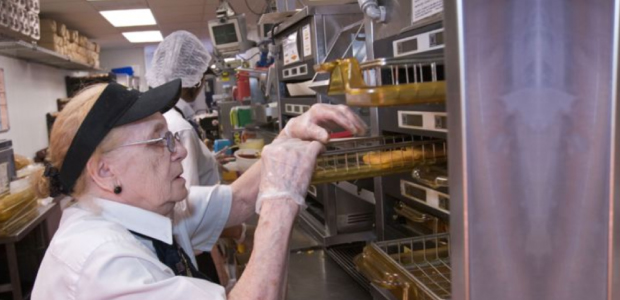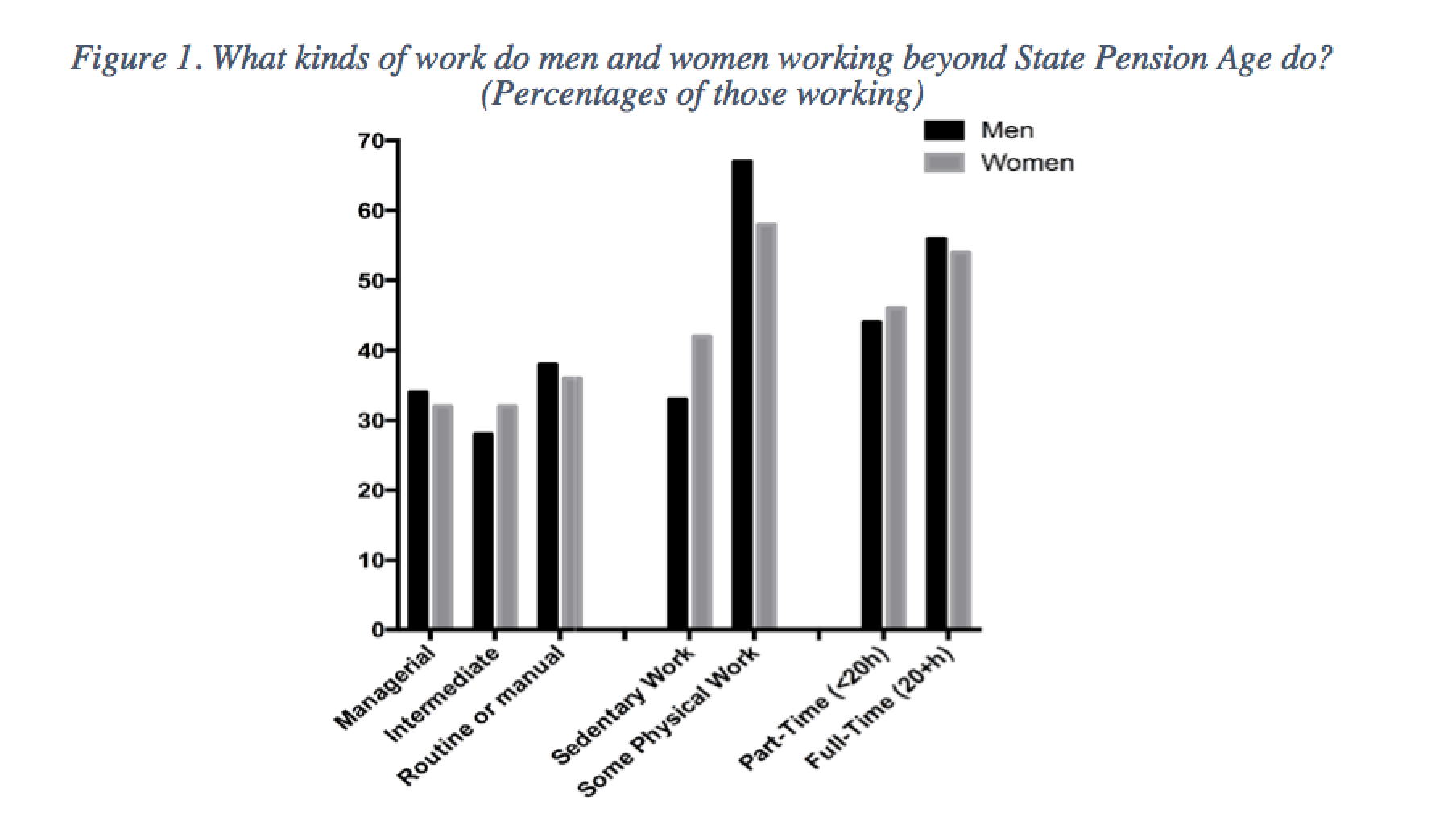Health effects of working beyond State Pension Age in England

Paid work in adulthood is generally considered beneficial for physical and psychological health and well-being (Woodell and Burton 2006) but its effects at older ages are unclear. Research on work and health in mid-life and beyond has mostly focused on whether retirement, or early retirement, is good or bad for health (Fisher, Chaffee, and Sonnega 2016). The evidence is mixed and the question remains heavily contested, but few studies so far have investigated the health consequences of continuing work beyond current state pension age. This is becoming an increasingly important question, as many countries in the world respond to population ageing and costs of pensions, health and social care by postponing state pension ages and other measures to extend working lives. Calvo, Sarkisian, and Tamborini (2013), for instance, found that older Americans who continued working past 62 (the eligibility age for claiming early Social Security retirement benefits) experienced no health benefits compared to those who retired at 62.
Health and work beyond State Pension Age in England
In a recent publication (Di Gessa et al. 2016), we used data from the English Longitudinal Study of Ageing (ELSA) (Marmot et al. 2016) to investigate this question for England. This dataset is especially useful because it is representative of the population aged 50 and older, follows people over time and collects historical data, including people’s circumstances before they stopped working. We considered three different measures of health: depression, sleep disturbance, and a summary measure of physical health. We knew from previous studies that healthier people are more likely to remain in paid employment (particularly at older ages) and also that lifetime labour market participation is important for understanding both health and work in later life. Therefore, in our analyses, we took these characteristics into account. We also investigated whether work characteristics (such as number of hours worked, type of job, and social class) are important for assessing the health effects of working beyond State Pension Age.
We selected about 2,000 participants on the basis of two criteria: age in 2006/07 and presence in the panel in three waves (2004/05, 2006/07, and 2008/09). Male respondents were to be between 65 and 74 years while female respondents were to be between 60 and 69 years, that is, in both cases, past state pension age, which was 60 years for women and 65 for men. We excluded older respondents because very few men and women work beyond 74 and 69 years, respectively.
Who works beyond State Pension Age, and is it good for their health?
Among those “in retirement age”, about 25% of women and 15% of men in our study reported working in 2006/07, confirming similar data from the Labour Force Survey. About one third were in managerial positions, almost half (45%) worked less than 20 hours per week, and one third of men and 41% of women had a sedentary job (Figure 1). Differences between men and women were minor, and not statistically significant.
We found that those in paid work at these older ages were more likely to be in good health than those who did not work. They were also more likely to have reported better health in childhood, to have suffered from fewer spells of serious ill health in adulthood, and to have stayed in education beyond secondary school. On the other hand, both men and women who had worked throughout most of their lives (full-time or part-time) were more likely to be in paid work after State Pension Age than those with more chequered work histories. Divorced or separated women and women with a mortgage were more likely to still be in paid work, but these characteristics made no difference to men. Also, women who were providing care were less likely to be in paid work beyond State Pension Age than those who were not providing care – once again this was not the case for men.
As we observed that those who were still working after pension age were healthier than those not working we needed to test whether this was because they were in work, and not vice-versa (they still worked because they were in better health). To do this we used multivariate models. The results of these more complex statistical models show that once we take into account the characteristics that people start off with, then working beyond State Pension Age makes no difference to their health.
In other words, controlling for a whole raft of characteristics relating to socio-demographics, prior health, and life-course patterns prior to State Pension Age, we found that both men and women in paid work post State Pension Age were no better off than their counterparts in terms of their health. This finding applies to all three health measures considered: depression, sleep disturbance, and our summary measure of physical health. We then tested this further by looking at the characteristics of the work itself (such as its physical demands, hours worked or social class). We again found that comparing like with like, the job characteristics did not have any measurable effect on health.
In summary, our results suggest no beneficial (or, for that matter, detrimental) effects of continuing to work past State Pension Age when we take people’s prior characteristics into account. Both current health and lifetime health, and prior work histories, seem to be very important predictors of whether men and women continue to work beyond State Pension Age. Those working are healthier to begin with, and those with more complete working histories are more likely to be in work beyond State Pension Age. Optimising and promoting health throughout the life-course seems key to policies aimed at extending working lives.
References
Calvo, E., N. Sarkisian, and C. R. Tamborini. 2013. “Causal effects of retirement timing on subjective physical and emotional health.” Journals of Gerontology – Series B Psychological Sciences and Social Sciences no. 68 (1):73-84. doi: 10.1093/geronb/gbs097.
Di Gessa, Giorgio, Laurie M. Corna, Loretta Platts, Diana Worts, Peggy McDonough, Amanda Sacker, Debora Price, and Karen Glaser. 2016. “Is being in paid work beyond state pension age beneficial for health? Evidence from England using a life-course approach.” Journal of Epidemiology & Community Health. doi: 10.1136/jech-2016-208086.
Fisher, Gwenith G., Dorey S. Chaffee, and Amanda Sonnega. 2016. “Retirement Timing: A Review and Recommendations for Future Research.” Work, Aging and Retirement. doi: 10.1093/workar/waw001.
Marmot, M., Z. Oldfield, S. Clemens, M. Blake, A. Phelps, J. Nazroo, A. Steptoe, N. Rogers, J. Banks, and A. Oskala. 2016. English Longitudinal Study of Ageing: Waves 0-7. edited by UK Data Service.
Woodell, G., and A.K. Burton. 2006. Is work good for your health and well-being?, Department for Work and Pensions. London: The Stationery Office.
